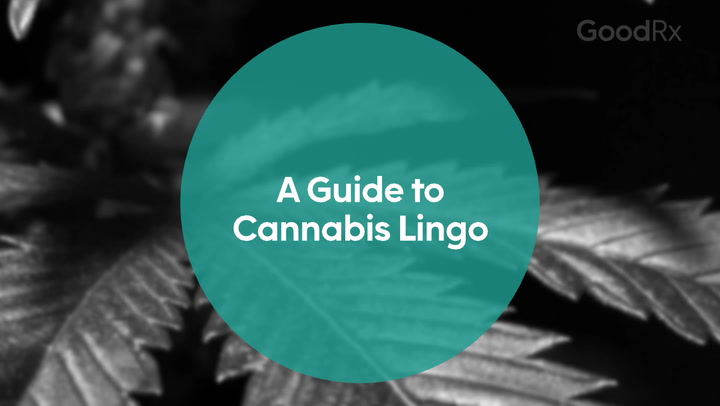
Cannabis Questions Answered: Will Delta-8 THC Show on a Drug Test?
Key takeaways:
Delta-8 THC is a chemical found in cannabis with similar effects to traditional (delta-9) THC.
Because delta-8 THC is similar to delta-9 THC, it can make you feel high and is likely to show up on a drug test.
Delta-8 THC is federally legal, but it isn’t regulated. So delta-8 THC products can contain residual chemicals and other contaminants. Individual states have started passing laws against delta-8 THC because of this risk.
Table of contents

The newest cannabis compound to hit the market, delta-8 THC, is creating quite a buzz. It’s being sold as an over-the-counter (OTC) version of delta-9 THC, one of the main compounds in cannabis that can cause feelings of euphoria — or being “high.” But what exactly is delta-8 THC, and will it show up on a drug test if you take it?
Here, we’ll answer five common questions you might have about delta-8 THC.
1. What is delta-8 THC?
Delta-8 tetrahydrocannabinol, or delta-8 THC, is a chemical made by the cannabis plant. These chemicals are called cannabinoids. But unlike cannabidiol (CBD) and delta-9 THC, the more well-known cannabinoids, cannabis plants only produce delta-8 THC in very small amounts.
Precisely-dosed, Wise Use Cannabis for Daily Relief
A THC oral tincture made for aches and stress. Clinician-led guidance always included. Use code TRYEO and get 10% off.


Must be 21 years or older to purchase. Cannabis is not recommended for women who are pregnant or nursing or those who are suffering from bipolar disorder or schizophrenia. Cannabis use may increase risk of falls. Always consult with your doctor before beginning any new medical treatment.
Most delta-8 THC used in products is actually man-made. It’s produced by applying chemicals to hemp CBD. These chemicals change the structure of CBD into delta-8 THC.
But this process is currently unregulated in the U.S., meaning no agency is testing to see if these products are safe. So it’s important to know that chemicals used to turn CBD into delta-8 THC may remain in the final product. And other contaminants, like pesticides, heavy metals, and mold, could also be present.
In fact, a 2021 study of delta-8 vape pens showed that of the 27 products studied, none were labeled accurately and 11 had unlabeled contaminants.
You may see delta-8 THC referred to as, “diet weed,” delta-8 CBD, or “weed light.” This is because it works in a similar way as delta-9 THC, but doesn’t seem to be quite as potent when it comes to the “high” you feel when you take it.
2. Does delta-8 show up on drug tests?
Probably, and new tests are already being developed to test for it directly.
There are several different types of drug tests. Some screen for the presence of cannabinoids of any kind. These types of drug tests would definitely detect delta-8 THC, because it’s a cannabinoid.
Read more like this
Explore these related articles, suggested for readers like you.
Other drug tests are more specific for THC. But even though they’re designed to look for delta-9 THC, it’s likely that having delta-8 THC in your system will also cause you to test positive. That’s because the chemical structure of delta-9 THC and delta-8 THC are almost identical. Plus, your body breaks them down into the same compounds, which drug tests also try to identify.
As mentioned, due to the widespread availability of delta-8 THC products sold OTC, new drug tests are being developed to screen for it. This is to help prevent the use of delta-8 THC by people looking for ways to work around court-mandated drug testing.
If you’re concerned about failing a drug test, it’s best to avoid delta-8 products.
3. How long does delta-8 stay in your system?
Anywhere from a few hours to a few weeks or more. It all depends on how you take it and how long you’ve been using it for.
Cannabinoids are stored in the fat cells in your body after they’re taken and then slowly released. So they can accumulate over time with regular use. Because their structures are similar, delta-8 is expected to stay in the body for the same amount of time as delta-9 THC.
For occasional users, this could be as little as 2 to 5 days. For regular users, it could be up to 15 days. And if you have a high amount of body fat, it could stay in your system for as long as 30 days.
Keep in mind that these are estimates. Your individual metabolism, as well as how much and how often you consume delta-8, will contribute to how long it’s detectable in your system.
4. Is delta-8 legal?
The short answer is: It’s complicated. Due to the Agriculture Improvement Act of 2018 (also referred to as the 2018 Farm Bill), hemp can be grown and used in products across the U.S. Hemp is a variety of cannabis that contains less than 0.3% THC.
Since most, if not all, delta-8 products are made from hemp CBD, they’re technically legal. But this question of legality has come up again and again over the years, with various government agencies and courts trying to come to a conclusion.
In 2020, the Drug Enforcement Administration (DEA) released a document called the Interim Final Rule. It stated that all synthetically derived tetrahydrocannabinols — are Schedule I controlled substances. Schedule I substances include illegal drugs (like heroin and ecstasy) that have high abuse potential and don’t have accepted medical use in the U.S. In other words, it seemed that delta-8 THC would be considered illegal under this guideline.
However, in a letter to the Alabama Board of Pharmacy in September 2021, the DEA clarified that cannabinoids in hemp are excluded from the guidelines, and are not considered illegal. This was upheld by the Ninth Circuit Court of Appeals in May 2022. They ruled that because the source of the delta-8 THC in question was hemp, it’s legal as defined by current federal law. But the court acknowledged that this seemed to be a “loophole” that Congress was responsible for fixing.
In the absence of clear federal laws surrounding delta-8 THC, many states have decided to take action on their own. Currently, over 15 states have banned or regulated the sale of delta-8 THC products. A few states have allowed for delta-8 THC products, but only if they’re sold in licensed dispensaries and go through regulated testing processes to make sure they are labeled accurately and don’t contain contaminants.
New state laws are being proposed across the country, so it’s best to check your individual state regulations to know if delta-8 is legal where you live.
5. What’s the difference between delta-8 and delta-10?
Delta-10 THC is another cannabinoid that’s made by applying chemicals to CBD. The main difference between delta-8 THC and delta-10 THC is that while delta-8 THC is found naturally in the cannabis plant, delta-10 THC is not. This means delta-10 THC is a synthetic cannabinoid — it’s man made, and not a naturally occurring chemical.
There’s also no human research on delta-10 THC, so we don’t really know how it affects the body and what risks or benefits it may have. But we do know that it’s produced in a similar way to delta-8 THC, so the same risks for contamination and residual chemicals exists for delta-10 products.
The bottom line
Delta-8 THC is a chemical naturally found in small amounts in cannabis. It has similar effects to delta-9 THC. Most delta-8 THC products are man-made by applying chemicals to hemp CBD. It’s sold OTC as delta-8 hemp or “weed light;” but make no mistake — it’s still likely to make you feel high. And it will probably show up on drug tests, too.
Although delta-8 THC products are currently federally legal, they’re not regulated. This means they may contain residual chemicals and other contaminants. Individual states have started passing laws against delta-8 THC due to these concerns. If you’re concerned about safety, legality, or passing a drug test, it’s probably best to avoid delta-8 THC altogether.
Why trust our experts?


References
American Association of Clinical Chemistry. (2022). Existing drug tests can detect delta-8-THC- The latest cannabis craze.
Boos, T. L. (2021). DEA letter to Alabama Board of Pharmacy. U.S. Department of Justice.
Cary, P. L. (2021). Delta-8 THC and drug testing in treatment courts.
Herrington, A. J. (2022). Federal appeals court rules that delta-8 THC is legal. Forbes.
Meehan-Atrash, J., et al. (2022). Novel Δ8-tetrahydrocannabinol vaporizers contain unlabeled adulterants, unintended byproducts of chemical synthesis, and heavy metals. Chemical Research in Toxicology.
Turner, A. R., et al. (2022). Marijuana. StatPearls.
U.S. Department of Justice. (n.d.). Marijuana.
U.S. Department of Justice. (2020). Implementation of the agriculture improvement act of 2018.
U.S. Food and Drug Administration. (2019). Hemp production and the 2018 farm bill.
Weil, M. (n.d.). What is delta-8-THC? Is it safe? The Cannigma.
Keep in mind that cannabis is legal in some states for personal and/or medicinal use, but not in others. Cannabis is still illegal under federal law.





























